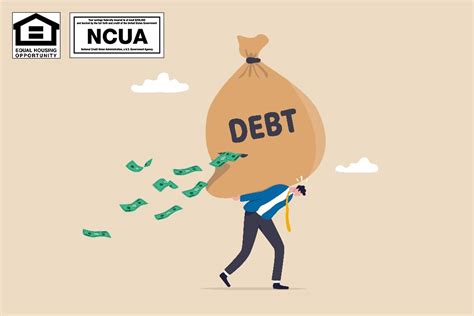For many men, the pursuit of financial stability and prosperity is a fundamental goal. However, navigating the complexities of debt while simultaneously striving to build wealth can feel like an uphill battle. This article outlines a powerful, multi-faceted strategy designed specifically for men to not only crush existing debt but also forge a robust path toward long-term financial health.

The Foundation: Understanding Your Financial Landscape
Before any significant progress can be made, a clear and honest assessment of your current financial situation is crucial. You can’t fix what you don’t understand.
Acknowledge and Assess All Debts
Start by making a comprehensive list of all your debts. This includes credit card balances, student loans, car loans, mortgages, and any personal loans. For each, note the outstanding balance, interest rate, minimum payment, and due date. Organizing this information will provide a clear picture of your financial obligations and highlight high-interest debts that demand immediate attention.
Craft a Realistic and Sustainable Budget
A budget isn’t about restriction; it’s about control and intention. Track your income and meticulously categorize every expense for a month or two. Identify where your money is actually going versus where you think it’s going. Once you have this data, create a budget that allocates your income to essential expenses, debt payments, savings, and a reasonable amount for discretionary spending. The goal is to live below your means, freeing up funds to attack debt.

Aggressive Debt Demolition Strategies
With a clear understanding of your finances, it’s time to go on the offensive against debt.
Choose Your Weapon: Debt Snowball vs. Debt Avalanche
- Debt Avalanche: Focus on paying off debts with the highest interest rates first. This method saves you the most money in interest over time. Once the highest-rate debt is paid off, roll that payment into the next highest.
- Debt Snowball: Prioritize paying off your smallest debt first, regardless of interest rate. The psychological wins of quickly eliminating smaller debts can provide powerful motivation to keep going. Once a debt is paid, roll that payment into the next smallest.
Both methods are effective; choose the one that best suits your personality and provides the most motivation.

Boost Your Income, Reduce Your Expenses
Accelerate your debt repayment by increasing your income or cutting expenses further. Consider taking on a side hustle, negotiating a raise at your current job, or selling unused items. On the expense side, look for areas to trim – eating out less, cancelling unused subscriptions, or finding cheaper alternatives for services.
Smart Debt Consolidation or Refinancing
For high-interest debts like credit cards, consolidating them into a single loan with a lower interest rate can be a game-changer. Options include personal loans, balance transfer credit cards (if you can pay it off before the promotional period ends), or even a home equity loan if you have significant equity. Always ensure the new interest rate and terms are genuinely better, and be disciplined about not accumulating new debt.
Building a Robust Financial Future
Crushing debt is only half the battle. Simultaneously, or immediately after gaining momentum on debt, you must start building a solid financial foundation.
Emergency Fund First: Your Financial Shield
Before you even think about investing heavily, establish an emergency fund. This should be 3-6 months’ worth of essential living expenses, stored in a separate, easily accessible savings account. This fund acts as a crucial buffer against unexpected job loss, medical emergencies, or significant home/car repairs, preventing you from falling back into debt.

Strategic Investing for Long-Term Growth
Once your emergency fund is solid and high-interest debt is under control, turn your attention to investing. Prioritize tax-advantaged accounts like a 401(k) (especially if your employer offers a match – that’s free money!), an IRA (Traditional or Roth), and HSA (Health Savings Account). Diversify your investments across different asset classes (stocks, bonds, real estate) to mitigate risk and maximize long-term growth through the power of compounding.
Protect Your Assets with Proper Insurance
Financial health isn’t just about accumulating wealth; it’s also about protecting it. Ensure you have adequate life insurance, disability insurance, health insurance, and property insurance. These safeguards prevent unforeseen events from derailing your carefully constructed financial plans and protect your loved ones.

Cultivating a Winning Financial Mindset
Ultimately, financial health is as much about mindset as it is about mechanics.
Discipline, Patience, and Consistency
Building wealth and crushing debt is a marathon, not a sprint. There will be setbacks, but consistent effort and discipline over time will yield significant results. Celebrate small victories to maintain motivation.
Continuous Learning and Adaptation
The financial world is always evolving. Stay informed about personal finance trends, investment strategies, and economic changes. Continuously educate yourself, adjust your strategies as life circumstances change, and don’t be afraid to seek professional financial advice when needed.
Conclusion
Taking control of your finances is one of the most empowering journeys a man can undertake. By implementing a disciplined approach to understanding and eliminating debt, coupled with a proactive strategy for saving and investing, you can build a formidable financial fortress. Embrace these strategies, commit to the process, and pave the way for a future of financial security, freedom, and lasting health for yourself and your family.




